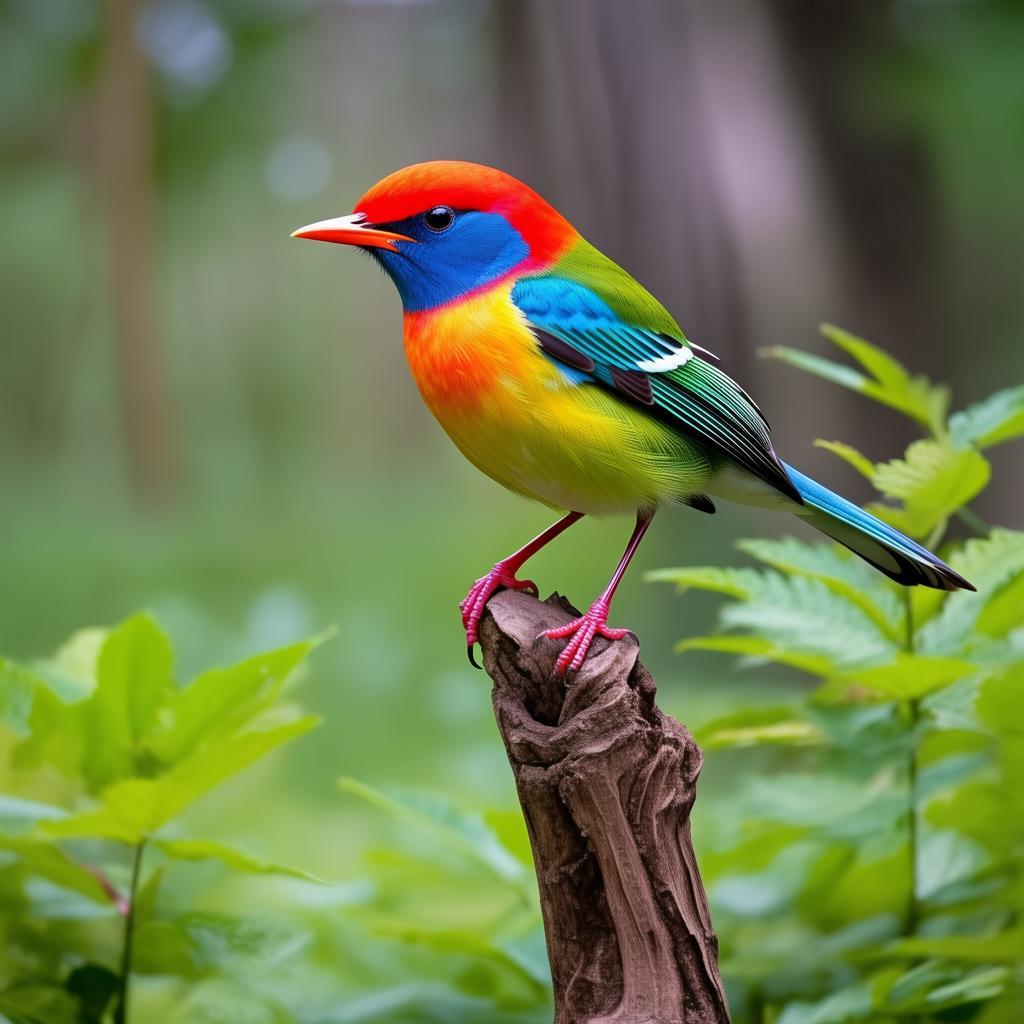Hey there, fellow pet lovers! I'm thrilled to share some exciting news with you. Today, we're diving into the world of the 巨嘴短翅莺 (Big Mouthed Short-Winged Chirmenger), a fascinating and unique bird that will surely steal the hearts of anyone who sees it. If you're thinking about adding this charming little creature to your family, read on to learn all about its care requirements, feeding habits, and some tips for keeping your feathered friend happy and healthy.

In this article, we'll cover everything you need to know to provide a loving home for your new pet. So, let's get started!
Feeding the Big Mouthed Short-Winged Chirmenger: Just like any other bird, the Big Mouthed Short-Winged Chirmenger requires a balanced diet. Your feathered friend should be fed a variety of seeds, fruits, vegetables, and insects. Use a quality bird food that is specifically formulated for small birds. Make sure to offer fresh water at all times, as this is essential for their hydration.
When it comes to feeding, here are some tips to keep your pet healthy: - Offer a mix of protein, fiber, and healthy fats. - Avoid processed foods and those containing artificial colors or flavors. - Always clean and fill their dish daily to prevent bacterial growth.
Creating a Safe and Comfortable Home for Your Pet: The Big Mouthed Short-Winged Chirmenger needs a spacious and safe living space. Use a large, flightless bird cage with plenty of perches and hiding spots. Make sure the cage is placed in a quiet and away from direct sunlight. Install a water bottle instead of a bowl to encourage drinking, as birds are more likely to drink from a dropper or a syringe.
Adding some greenery inside the cage can also create a more stimulating environment for your pet. Place some safe plants and toys for them to explore and play with. Regularly clean the cage to maintain a fresh and hygienic environment.
Health Care and Regular Check-ups: It's crucial to take your Big Mouthed Short-Winged Chirmenger to the vet for regular health check-ups. Your vet will need to monitor their weight, check for any signs of illness, and provide any necessary vaccinations or treatments. Keep a record of their vet visits and symptoms to ensure you're always prepared.
Some common health issues that may affect the Big Mouthed Short-Winged Chirmenger include: - Beak and Feather Issues: Regular trimming of the beak and feathers can help prevent matting and promote healthy feather growth. - Digestive Problems: Ensure a balanced diet and avoid foods that may cause gastrointestinal upset. - Respiratory Infections: Keep the air clean in their living space and monitor them for any signs of respiratory distress.
Some personal experiences: When I first got my Big Mouthed Short-Winged Chirmenger, I was both excited and nervous. I did a lot of research and read countless articles to make sure I was providing the best care possible. From the moment I placed them in their new cage, I could see how much they loved the space and the toys I provided. They were very curious and loved to explore every nook and cranny of their home.
One of the most rewarding aspects of pet care for me has been witnessing their growth and development over time. Their vibrant feathers and playful behavior never fail to bring a smile to my face. I've also learned the importance of regular vet visits and how crucial it is to keep their environment clean and hygienic. Overall, having a pet has taught me so much about love, patience, and commitment.
In conclusion, the Big Mouthed Short-Winged Chirmenger is a wonderful addition to any home. With proper care and attention, they can become happy and healthy members of your family. Remember to always consult with a professional vet before making any significant changes to your pet's care routine. Happy birding!
内容《巨嘴短翅莺》可能来自AI生成或网友投稿,不代表全量百科立场。

